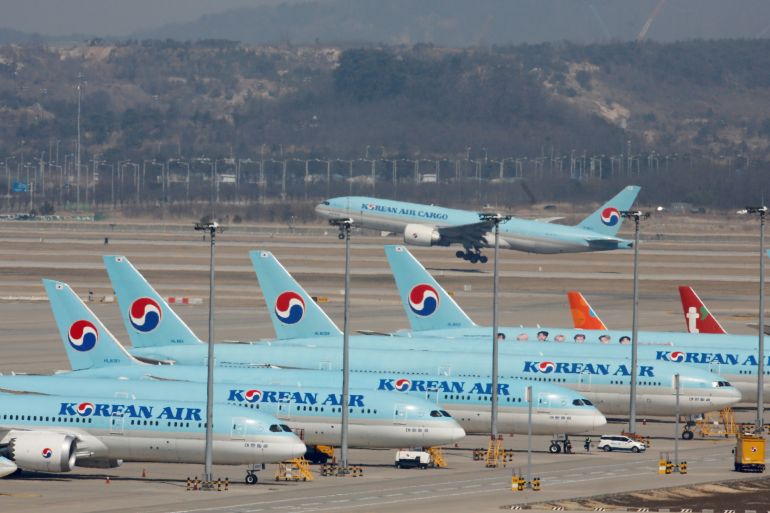South Korea to test travellers from China amid COVID surge
The move comes after similar announcements by India, Italy, Taiwan and the US.

South Korea will test travellers from China for COVID-19 and restrict short-term visas for Chinese nationals, joining a handful of countries that have introduced travel restrictions due to surging infections in the world’s most populous country.
Travellers from China will be required to provide a negative PCR test within 48 hours of departure or a rapid antigen test taken within 24 hours, followed by a PCR test after arrival, Prime Minister Han Duck-soo said on Friday.
Keep reading
list of 4 itemsThese are the COVID requirements for Qatar’s World Cup 2022
Chinese cold on overseas travel even if COVID curbs ease: survey
China’s lingering COVID fears cloud global travel rebound
The testing on arrival and pre-departure tests will come into effect from January 2 and January 5, respectively.
South Korea will also temporarily halt the expansion of flights to China and limit all internal flights to Incheon International Airport, the country’s biggest, Han said.
“We need to urgently prepare for any domestic ripple effects following China’s easing of quarantine rules,” Han said. “We will prepare to take stronger measures in case the situation gets worse, if we see a rapid increase of infections from new arrivals or appearance of new variants.”
The measures, most of which are set to be in place until at least the end of February, come after India, Italy, Taiwan and the United States introduced COVID tests for arrivals from China amid concerns about the potential emergence of new variants and the Chinese government’s lack of transparency. Other countries, including the Philippines and the United Kingdom, are considering similar measures.
Some health experts have questioned the need for the restrictions, arguing they are unlikely to stop the spread of new virus variants.
European Union officials on Thursday rejected a call from Italian Prime Minister Giorgia Meloni for the bloc to test all air passengers from China.
Infections have surged in China following Beijing’s decision to unwind its controversial “zero-COVID” policy, putting hospitals, morgues and crematoriums under strain.
Chinese authorities have been accused of downplaying the seriousness of the situation, with health officials reporting only a handful of deaths in recent weeks.
Health experts have predicted China could experience up to 2 million deaths in the coming months due to the population’s lack of natural immunity after nearly three years of isolation and patchy vaccine uptake among the elderly.